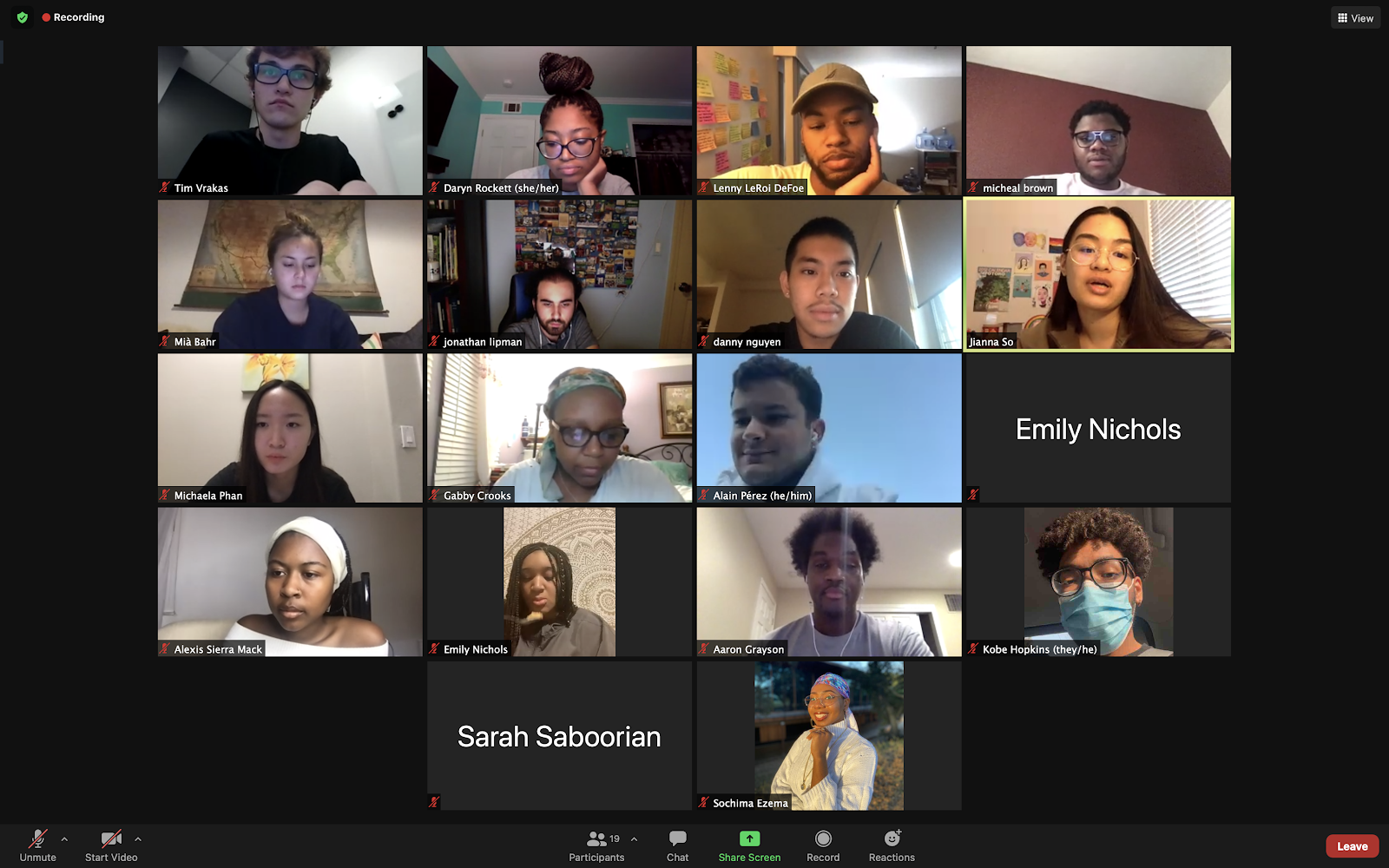Undergraduate senators debated urging the University to eliminate the Graduate Record Examination (GRE) exam as a requirement for graduate studies admissions at their Thursday meeting.
The senators discussed five resolutions passed by the Graduate Student Council (GSC) but did not pass any resolutions or bills of their own.
Graduate Councilor Sanna Ali, a fourth year Ph.D. student in communication, was present at the meeting to field questions from senators on topics ranging from the GRE to racial injustice.
The GSC called on Stanford to eliminate the GRE exam as a requirement for graduate admission, citing a study that shows the test is “biased against underrepresented groups and is not predictive of successful completion of graduate studies.”
The resolution also cited that some peer institutions, such as Princeton and Brown, no longer require the test for admission for certain programs.
Senator Tim Vrakas ’22 suggested that the test may not be as important for quantitative majors.
“Several departments of the School of Engineering removed the GRE from their applications in the spring because of COVID,” and according to Vrakas, “I know at least electrical engineering isn’t planning on putting it back. So I think it’s somewhat of a myth, like it’s not necessarily universally true, that engineering schools are using it for anything.”
Senators also debated several GSC resolutions aimed at addressing racial injustice on campus, including one resolution asking the University for a financial commitment of at least $25 million to address the requests of the Black community, including $3 million for “infrastructure for improved quality of life and well being” and at least $5 million toward “an endowment intended for enslaved descended African American students.” A second asked the University to implement “mandatory regular and universal anti-racist training for the entire Stanford community.”
The resolution referred to numerous reported racist and anti-Black incidents that have occurred on campus as well as the need for Stanford to “keep pace” with peer institutions as justification for its implementation.
The resolution would require any individual “involved in racial injustice or interpersonal racism” and “be potentially subject to 40 unpaid hours of additional anti-racist training.” It would also designate Juneteenth as a paid campus-wide holiday.
Calling for a public commitment from the University to departmentalize African & African American studies, the GSC urged the administration to deliver a five-year strategic plan by June 2021.
Senate Chair Michael Brown ’22 decided to delay action on this resolution, putting it “on the back burner for now” in order to communicate with groups involved in organizing the call for departmentalization and to obtain sponsors for the bill. Brown went on to say, “It’s definitely something we just want to be very strategic about.”
Asked why the bills weren’t passed, Vrakas wrote in a later statement to The Daily that the bills may require “more changes” before “they’re ready for presentation to the Faculty Senate and Administration.”
Contact Michaela Guo at mcguo ‘at’ stanford.edu and Sam Catania at samcat ‘at’ stanford.edu.
